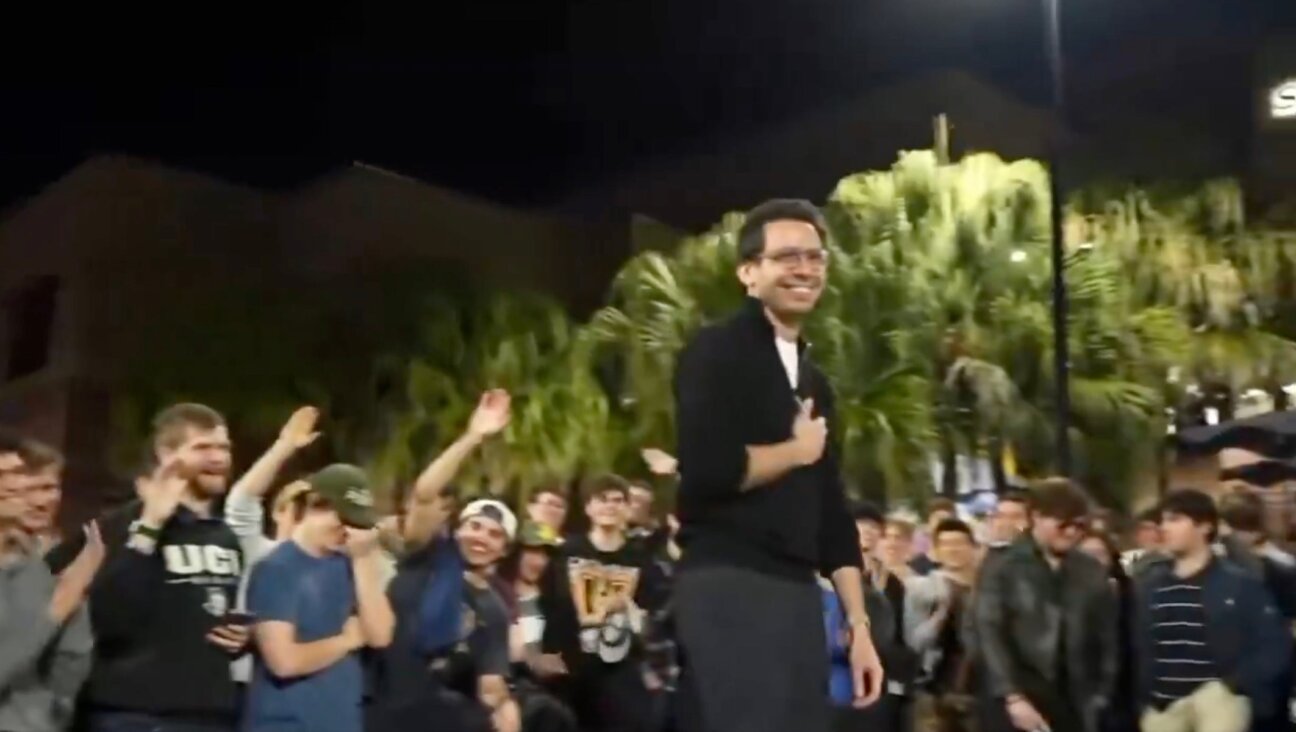Why One Brooklyn Filmmaker Moved Her Family to Jerusalem

Graphic by Angelie Zaslavsky
“I’ve never looked for easy,” Danae Elon told the crowd at the Doc NYC film festival on November 14, after the American premiere of her film, “P.S. Jerusalem.” In the film, Elon, who is the Jerusalem-born daughter of Israeli writer Amos Elon, decides to take her Algerian-born husband and their three children from the comfortable American life they lead in Brooklyn to the complexities and conflicts of her hometown.
The documentary opens with delicate snowflakes falling over Jerusalem, covering the city in a white blanket of snow. While the film is esthetically beautiful in its depiction of Jerusalem, other aspects of it are less successful. Elon moves with the intention of providing her children with a connection to their roots and heritage, yet she never explains why or what attracts her to Jerusalem itself. As she remains behind the camera and provides very sparse narration, she leaves the audience wondering why she would move her family back to a place that she portrays mainly through the lens of conflict.
Some of the most powerful scenes in the film occur when Elon goes with her son to school. The children are enrolled in a Yad B’Yad school, a special elementary school that deliberately integrates Arab and Jewish students. It is there that the children learn Arabic, Hebrew and history from both Israeli and Palestinian perspectives.
One of the most heartbreaking scenes of the film is watching Elon’s son as he is forced to part with his Arab classmate who, over the course of three years, has become his best friend. The boys hold on to each other, cry, and plead with their mothers not to be separated from one another. The film also brings the viewers to everyday occurrences on the streets of Jerusalem including political rallies, checkpoints, house demolitions, air-raid sirens and soldiers being called to reserve duty for an operation in Gaza.
Still, the documentary does an outstanding job of portraying the interwoven layers and crises of identity that the average Jerusalemite is confronted with on a daily basis. By exposing the audience to the internal dilemmas and struggles of one family, “P.S. Jerusalem” portrays a city littered with complexity, strife and political conflict.
















